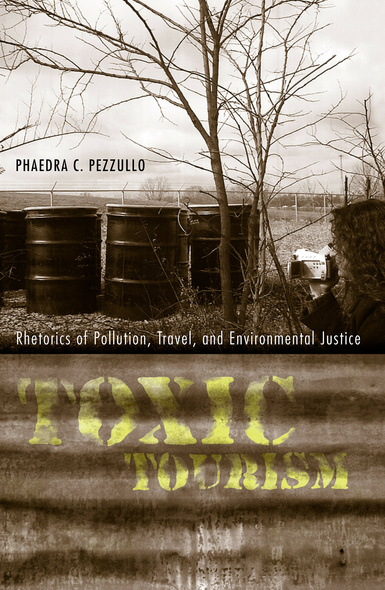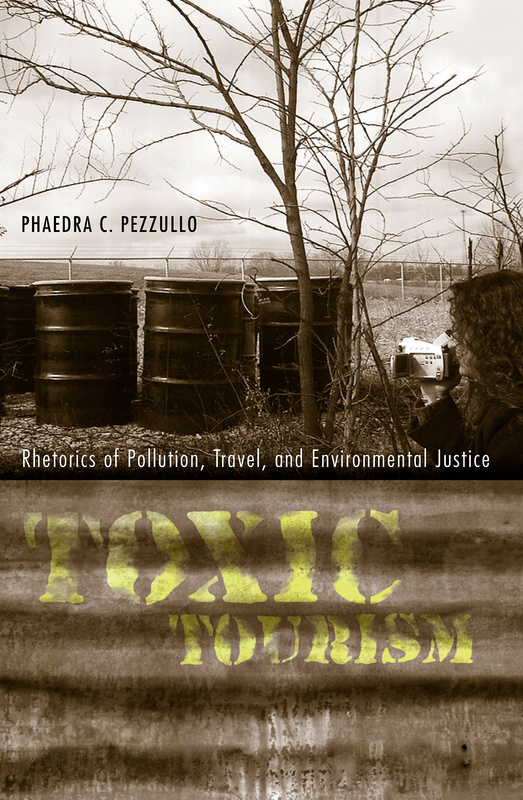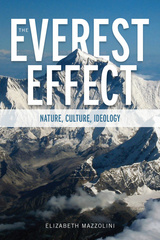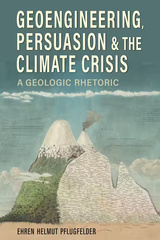Toxic Tourism
Rhetorics of Pollution, Travel, and Environmental Justice
University of Alabama Press
Winner of the:
2010 Jane Jacobs Urban Communication Book Award, sponsored by National Communication Association
2007 James A. Winans-Herbert A. Wichelns Memorial Award for Distinguished Scholarship in Rhetoric and Public Address, sponsored by National Communication Association
2007 Best Book of the Year for Critical and Cultural Studies, sponsored by National Communication Association
2007 Christine L. Oravec Research Award, sponsored by Environmental Communications Division of the National Communication Association
The first book length study of the environmental justice movement, tourism, and the links between race, class, and waste
The first book length study of the environmental justice movement, tourism, and the links between race, class, and waste
Tourism is at once both a beloved pastime and a denigrated form of popular culture. Romanticized for its promise of pleasure, tourism is also potentially toxic, enabling the deadly exploitation of the cultures and environments visited. For many decades, the environmental justice movement has offered “toxic tours,” non-commercial trips intended to highlight people and locales polluted by poisonous chemicals. Out of these efforts and their popular reception, a new understanding of democratic participation in environmental decision-making has begun to arise. Phaedra C. Pezzullo examines these tours as a tactic of resistance and for their potential in reducing the cultural and physical distance between hosts and visitors.
Pezzullo begins by establishing the ambiguous roles tourism and the toxic have played in the U.S. cultural imagination since the mid-20th century in a range of spheres, including Hollywood films, women’s magazines, comic books, and scholarly writings. Next, drawing on participant observation, interviews, documentaries, and secondary accounts in popular media, she identifies and examines a range of tourist performances enabled by toxic tours. Extended illustrations of the racial, class, and gender politics involved include Louisiana’s “Cancer Alley,” California’s San Francisco Bay Area, and the Mexican border town of Matamoros. Weaving together social critiques of tourism and community responses to toxic chemicals, this critical, rhetorical, and cultural analysis brings into focus the tragedy of ongoing patterns of toxification and our assumptions about travel, democracy, and pollution.
This volume pushes the literature on tourism into new directions, with progressive ends. Noting that the largest industry in the world, tourism, is itself often invasive, destructive, corrosive, and offensive, Pezzullo (communications, Indiana Univ.) demonstrates how noncommercial tours can serve as a rhetoric of resistance to mobilize public sentiment against toxic patterns and practices. That is, 'By weaving together social critiques of tourism and the responses of communities to the burdens of literal chemical toxicity, this book aims to bring into focus and hold accountable deeply embedded and highly problematic assumptions about travel, pollution, and democracy.' In particular, such experiential explorations of polluted areas serve to challenge the binary assumptions of society and environment and focus on racial, economic, and gendered cultural politics; that is, to shift the usual tourist gaze on the picturesque and nostalgic to that which is disgusting and grotesque as part of a revolutionary mission. After two introductory chapters that define terms, Pezzullo follows three case-study chapters with a conclusion and epilogue. The volume is well illustrated, referenced, and footnoted. Summing Up: Recommended. Upper-division undergraduates and above.'
—CHOICE
‘Pezullo’s topic and approach are as fresh as her subject matter is fetid. . . . Her exposure of corporate cooptation of environmentalism (‘astroturfing’) is eloquent. The discussion of AstraZeneca’s manufacturing cycle of making cancer causing herbicides, cancer treatment drugs, and sponsorship of Breast Cancer Awareness is revelatory and awful. . . . Pezullo throws the political work of the tour into sharp relief, not merely toxic tours, but potentially all tours. This is excellent work because it points to the possibility of a more active and engaged type of tourism as opposed to a passive and alienated one.’
—Dean MacCannell, author of The Tourist: A New Theory of the Leisure Class
A very stimulating read. I find myself wanting to bring Toxic Tourism up in conversations, and I'm resisting the temptation to share chapters 2 and 3 early. . . . I can't think of another book that presents the modified ethnographic approach used by Pezullo so explicitly. It would be a wonderful textbook for a graduate course in qualitative research methods.
—Tarla Peterson, author of Sharing the Earth: The Rhetoric of Sustainable Development
Phaedra C. Pezullo is Assistant Professor of Communication and Culture at Indiana University and coeditor, with Ronald Sandler, of Environmental Justice and Environmentalism: Assessing the Social Justice Challenge to the Environmental Movement.







